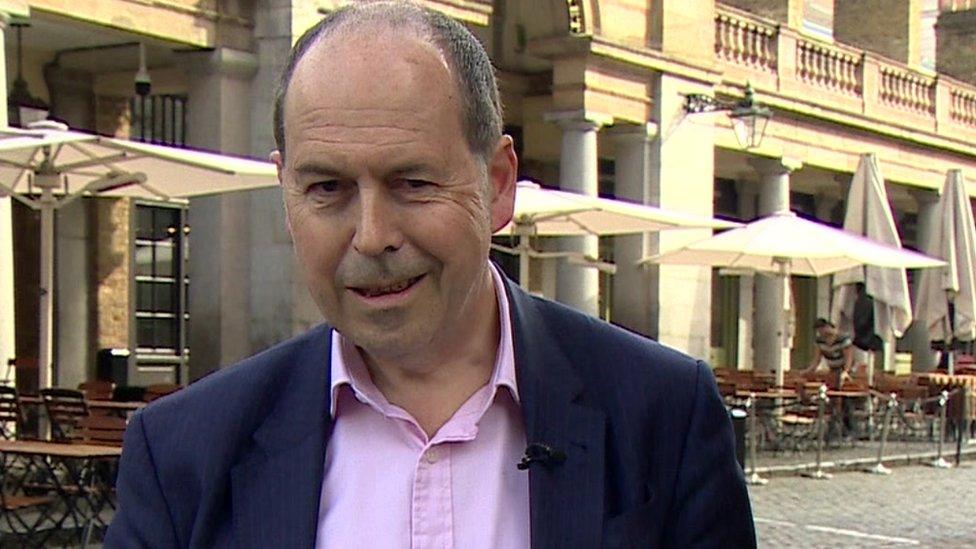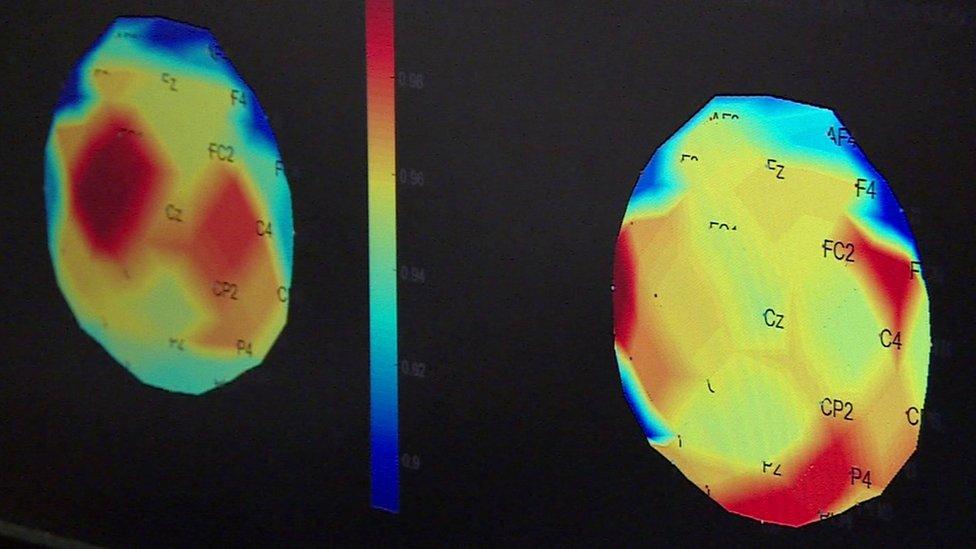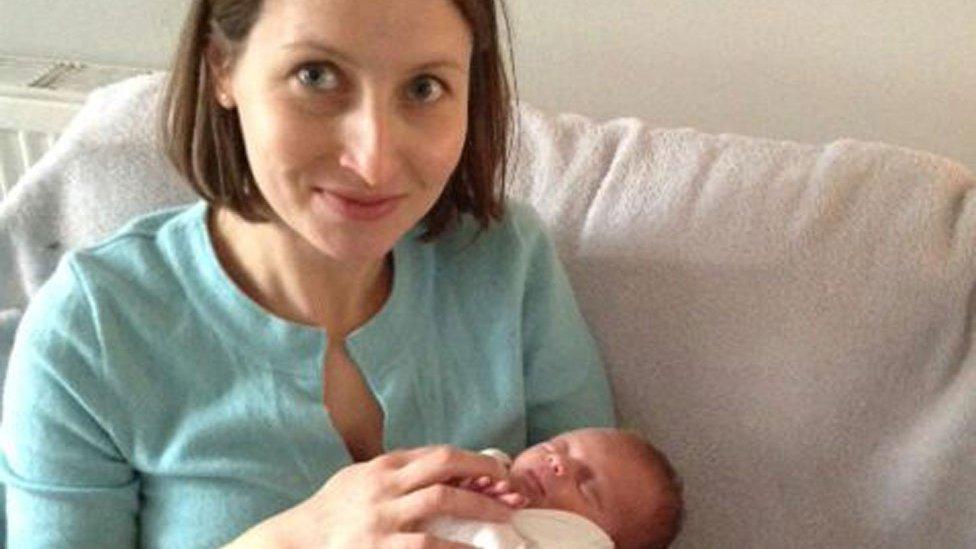BBC reporter Rory Cellan-Jones urges 'openness' on Parkinson's
- Published

The BBC's technology correspondent is encouraging people to be open about their illnesses.
Rory Cellan-Jones revealed on Thursday he has been diagnosed with Parkinson's disease.
Concerned TV viewers contacted the corporation after noticing his hand shaking during a report on 5G technology on BBC Breakfast.
"I wanted to be frank about it," he told BBC Radio 5 Live on Friday morning, urging others to do the same.
Allow X content?
This article contains content provided by X. We ask for your permission before anything is loaded, as they may be using cookies and other technologies. You may want to read X’s cookie policy, external and privacy policy, external before accepting. To view this content choose ‘accept and continue’.
Symptoms of Parkinson's - a degenerative brain condition - include involuntary tremors and stiff muscles.
"A few months ago I was diagnosed with Parkinson's disease and it wasn't a huge shock to me as I'd noticed a few things in the last year changing," he told 5 Live host Nicky Campbell.
"But I was aware that people were noticing on air occasionally this tremor in my right hand. Live broadcasting is always pretty hairy, because we were doing a live broadcast over 5G.
"I got on the train with my producer to head to Birmingham to do more and we had a little chat and she put the idea in my head of going public about this because she'd obviously noticed the shaking on air and few other people had.
"So I just put it out there really wanting to be up front about it because some people were worried a couple of people had actually contacted the BBC and suggested I should see a doctor and I'd already done that and I wanted to be frank about it."
He added: "I've had loads of lovely messages, including a few from people who've also had Parkinson's.
"One person wrote to me saying, 'I work in PR and I haven't told my clients, I'm not sure what they would think'. And I think that's really sad.
"I was with a great Parkinson's nurse the other day and she told me about a client of her's who'd been diagnosed really young and he'd lost his job because he began to slow down a bit and he hadn't told his employers about it.
"You need that information out there."
Cellan-Jones went on to say that he's now on medication and also taking part in medical research into the disease, which has so far manifested itself in a slight limp, hand tremors and his typing getting worse.
"I'm getting good treatment and the symptoms are mild right now," he wrote on Twitter a day earlier, "so I'm carrying on as normal. Onwards and upwards!"
His BBC colleagues and MPs were among those to offer messages of support on social media, with Brussels reporter Adam Fleming writing: "True public service to be so open about it. Best wishes."
Allow X content?
This article contains content provided by X. We ask for your permission before anything is loaded, as they may be using cookies and other technologies. You may want to read X’s cookie policy, external and privacy policy, external before accepting. To view this content choose ‘accept and continue’.
Julie Dodd, a director at Parkinson's UK, said: "Being diagnosed with Parkinson's can be a scary and isolating time, so it is fantastic to hear that Rory is receiving the treatment he needs and is able to approach his diagnosis with such a positive attitude.
"Parkinson's will affect one in 37 of us in our lifetime, but it remains a little understood condition.
"While most people associate it with a tremor, there are actually more than 40 symptoms and it affects everyone differently."
Cellan-Jones started his BBC career as a researcher on Look North and became the business and economics correspondent in 1990.
After the dot-com crash of 2000, he wrote the book Dot.bomb and has reported on the growth of websites and internet companies.
- Published22 April 2019

- Published11 April 2019
